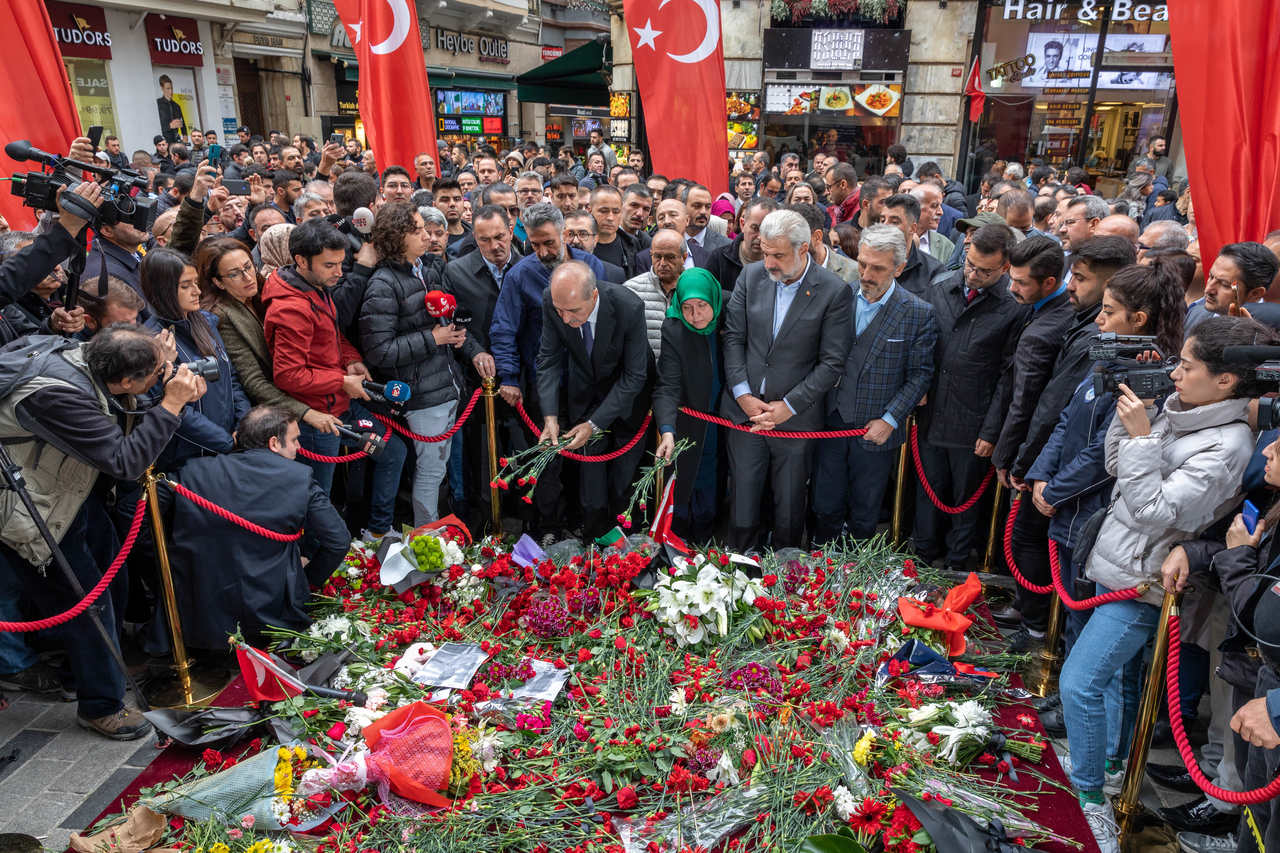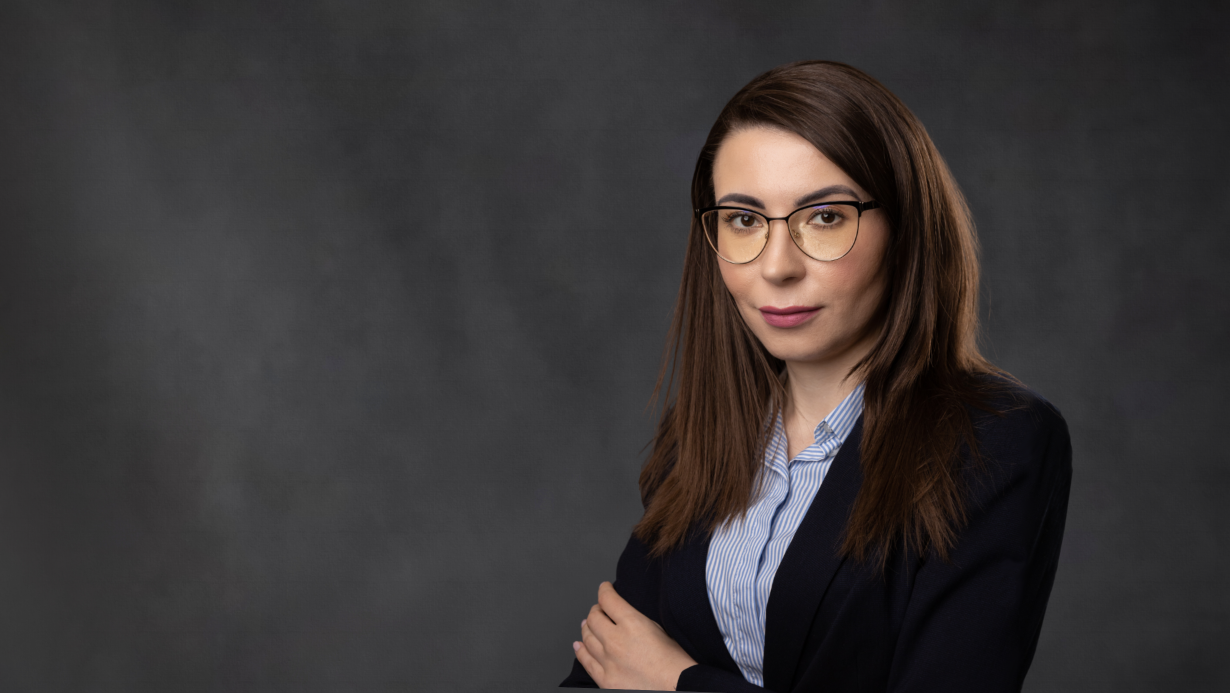The Kurdish Question Dominates Turkish Policy in the Wake of the Istanbul Bombing
On 13 November, a bomb exploded in Istanbul. In retaliation, Türkiye carried out air strikes against the Kurdistan Workers’ Party (PKK) and its affiliates in Iraq and Syria. The public’s sense of a renewed internal threat resulted in a drop in support for Turkish President Recep Tayyip Erdoğan. Possible Turkish ground operations in northern Syria may complicate the continuing fight against ISIS.
 Tolga Ildun/Zuma Press/Forum
Tolga Ildun/Zuma Press/Forum
The bomb blast killed six people and injured 81. So far, no one has claimed responsibility for the attack. Turkish Interior Minister Süleyman Soylu blamed the PKK and suggested U.S. shared responsibility because it works with Kurdish forces in Iraq and Syria. Soylu indicated that whoever supports the Syrian Democratic Union Party (PYD) and provides the PKK with intelligence is a perpetrator. Istanbul police reported that the attacker was a Syrian national, Ahlam Albashir. In response to the attack, on 20 November the Turkish armed forces initiated Claw-Sword (Pençe-Kılıç Harekâtı), an anti-terrorist operation. As part of it, the air force conducted airstrikes against Kurdish positions along a 730-kilometre front between the town of Tel Rifat in northern Syria and the Asos mountain region on the Iraqi-Iranian border. On 23 November, the Turkish military also launched unmanned aerial vehicle attacks on Kurdish forces guarding the exterior of the Syrian al-Hol camp where the families of ISIS fighters are held. Erdoğan continues to maintain that Türkiye’s actions will not be limited to airstrikes and will expand to ground operations when the right circumstances arise. The Turkish parliament rejected a request from the opposition Republican People’s Party (CHP) to set up a parliamentary inquiry committee to investigate the attack, prompting press speculation that the bombing was a provocation used by the ruling party to intensify its actions against the PKK and its affiliates.
The bombing came months after Erdoğan signalled the need for a new military operation in northeastern Syria. Earlier, representatives of the ruling Justice and Development Party (AKP) visited the headquarters of the People’s Democratic Party (HDP), recognised by the government coalition as an informal partner of the six opposition parties that fought against the presidential system introduced in Türkiye in 2018. The meeting with the pro-Kurdish group was aimed at gaining support for the AKP’s proposed constitutional amendment on strengthening the traditional family model and guaranteeing women the right to wear headscarves. The attack took place in the context of the deteriorating economic situation and anti-refugee sentiment prevailing in society. Surveys from the last year indicate that 80% of Turks want the refugees to return to their countries. At the same time, the president’s popularity is waning: in October polls, support for Erdoğan was at 47.6%, but dropped to 45.1% in November. A firm reaction and possible ground action in northern Syria could help Erdoğan consolidate the conservative-nationalist electorate and strengthen his political position ahead of next year’s presidential election.
Turkish Kurdish Policy
Since the 1980s, Türkiye has been fighting separatist movements among the Kurdish community on its territory (which in total numbers 13-20 million), but especially PKK militants. When the AKP took power in 2002, reform efforts were made to meet the Copenhagen criteria for EU accession, which initially brought positive results for the Kurdish community. In order to settle the long-standing conflict, the authorities also started an unofficial dialogue with the imprisoned leader of the PKK, Abdullah Öcalan. This process was disrupted mainly by the outbreak of the civil war in Syria in 2011, as well as the parliamentary elections in June 2015. At that time, the AKP lost its monopoly on power, gaining just over 40% support, while for the first time the opposition HDP party crossed the 10% threshold. Its success made the AKP focus on it as a threat because it received votes from conservative Kurdish voters. As a result of the repeated elections in November 2015, the AKP regained power and resumed its military actions against the PKK. The events of 2016, which followed a failed coup attempt, were also a turning point. After the introduction of a state of emergency, HDP politicians were arrested, including the co-chairs, Selahattin Demirtaş and Figen Yüksekdağ. The government’s policy on the Kurdish issue is also influenced by the AKP’s coalition partner, the Nationalist Action Party (MHP). The leader of the group, Devlet Bahçeli, is dubious of peaceful attempts to end the Kurdish conflict and demands that the HDP should be outlawed, alleging ties to the PKK. Moreover the Turkish authorities are increasingly targeting the organisation and its local branches in Syria and Iraq. This is based on the belief of decision-makers that internal security is not limited to the borders of the state, which in turn affects the securitisation of foreign policy of the AKP government. Policymakers articulate that the state must maintain the ability to conduct independent military operations in neighbouring Arab states, regardless of foreign partners. Since 2016, these military operations have included Euphrates Shield (2016), Olive Branch (2018), Peace Spring (2019), Spring Shield (2020) in Syria and a series of military operations in northern Iraq.
Representatives of six opposition parties support the HDP, pointing to its representation in the Grand National Assembly. In connection with the prospect of next year’s parliamentary and presidential elections, the most important opposition group, CHP, which at the beginning of the Republic advocated a strong policy of assimilation of the Kurds, since last year has intensified actions aimed at improving its image in the eyes of the Kurdish community. It initiated a dialogue with the slogan helalleşme, which means approximately “forgive each other” or “make amends”. Compared to 2018, in 2020 there was an increase in support for the CHP by 4.7 percentage points, making it the third most popular party in the southeastern region of Türkiye (after the HDP and the AKP). However, the opposition political parties have not presented a specific plan to resolve the Kurdish issue in Türkiye in the event they win in the next elections.
The Kurdish Issue in Relations with Türkiye’s Partners
Since President Barack Obama’s time in office, the Kurdish issue has been a source of conflict in relations between Türkiye and the US. Erdoğan accuses the U.S. of sponsoring and funding terrorism via the People’s Self-Defence Units (YPG) and the PYD, which played a key role in defeating ISIS in Syria. The Turkish authorities, however, consider them terrorist organisations linked to the PKK. The Kurdish issue is also a contentious factor in Türkiye’s relations with Finland and Sweden. Turkish decision-makers point out that both the YPG and PYD are present in the two countries. They expect—mainly from Sweden—these countries to incorporate Turkish concepts in terrorism legislation and in “national security” in exchange for approval to accession to the North Atlantic Alliance. With the growing likelihood of a new Turkish land operation, the U.S. decided to resume joint military patrols with the YPG-dominated Syrian Democratic Forces (SDF) in order to prevent possible destabilisation of the status quo in Syria. Russia’s Vladimir Putin also does not support the Turkish military intervention plans and is trying to persuade Erdoğan to begin a dialogue with the Syrian leader. Iran regards any military action initiated by the Turks in Iraq and Syria as a threat to its influence in the region.
Perspectives
The expected parliamentary and presidential elections in 2023 pose a risk of intensifying acts of violence in response to the intensification of the political struggle. There is also the probability of further Turkish military offensives against the PKK and its affiliated organisations in northern Syria, which in the long term will hamper the fight against ISIS. Turkish military operations could accidentally lead to the escape of the terrorists currently held in prisons controlled by the Kurdish forces and return to their activity in the Middle East and Europe. Erdoğan already announced that any operation would aim to take control of the towns of Tel Rifat and Manjib, which are located at a checkpoint on the M4 highway that crosses Idlib Province (Syria). A successful operation could encourage the ruling coalition to resettle refugees currently residing in Türkiye—blamed by some in Turkish society for the deteriorating economic situation—to Türkiye’s northern Syria “safe zone”. In order to persuade Erdoğan to not escalate the conflict and ensure violence does not flare up again, the EU and the U.S. must work together on that goal, despite limited capabilities to prevent a possible Turkish ground operation in northern Syria. However, with the prospects of difficult elections next year, Erdoğan is likely to strive to strengthen his political position at the expense of EU and U.S. interests in the region.



